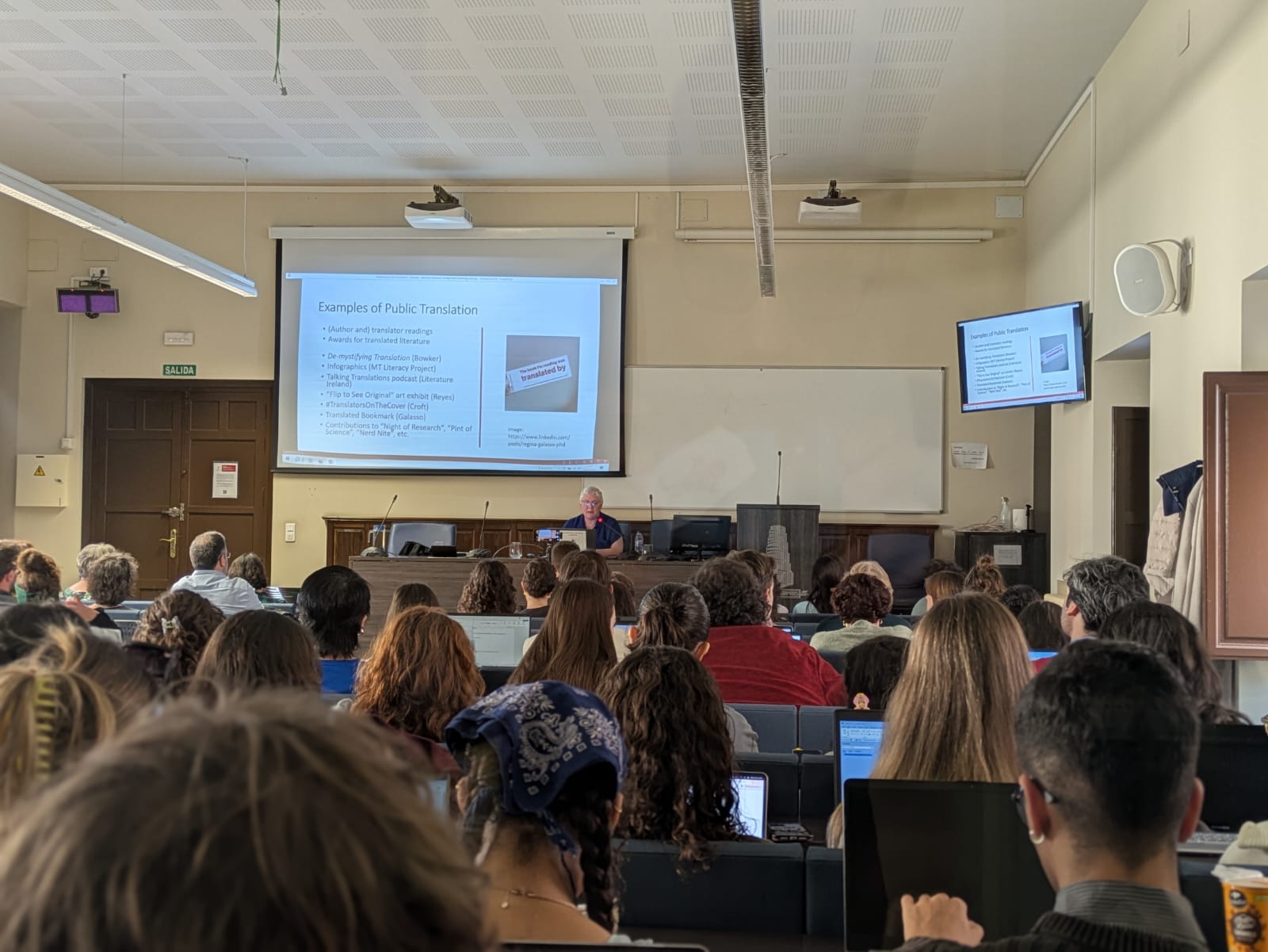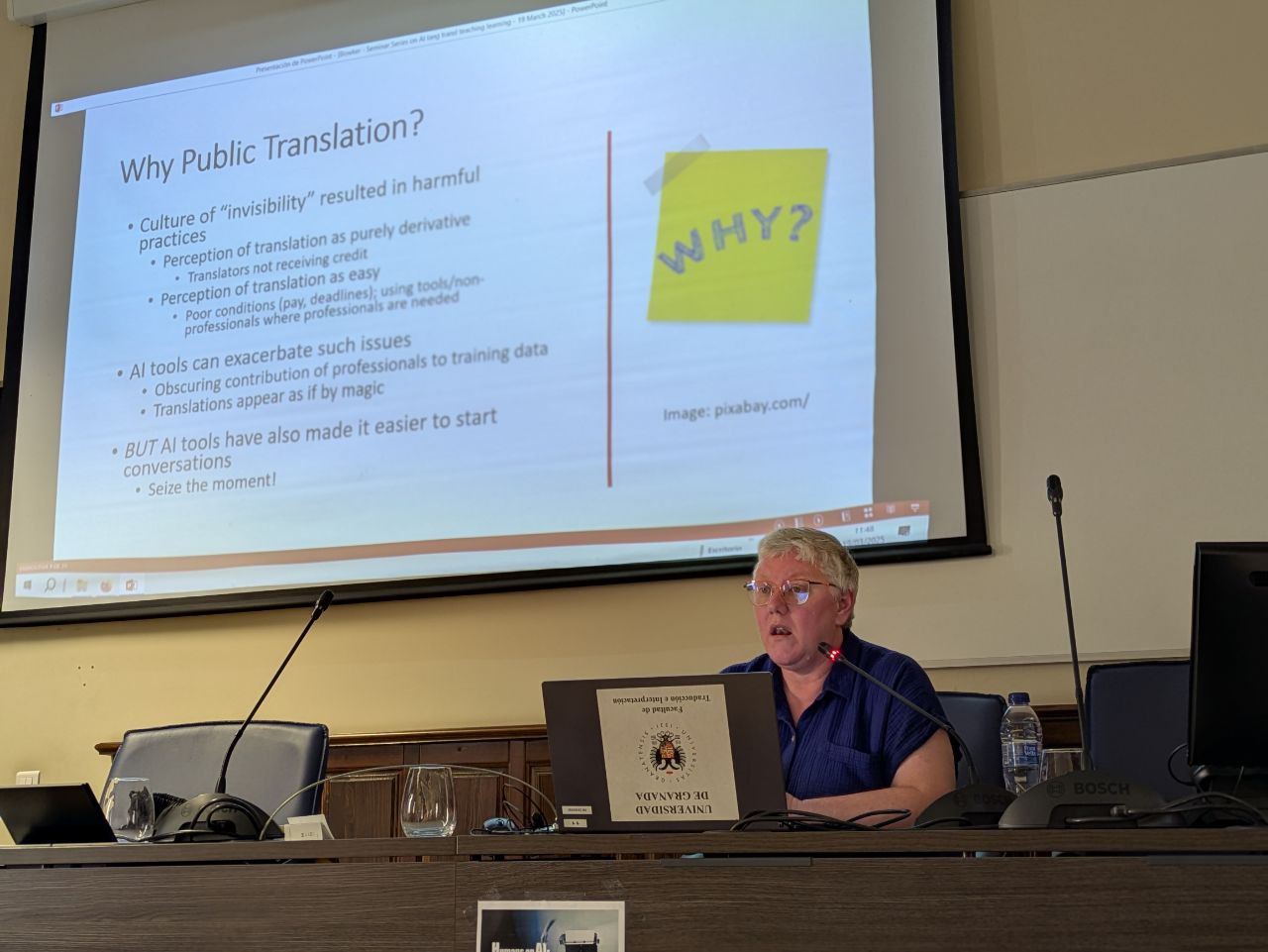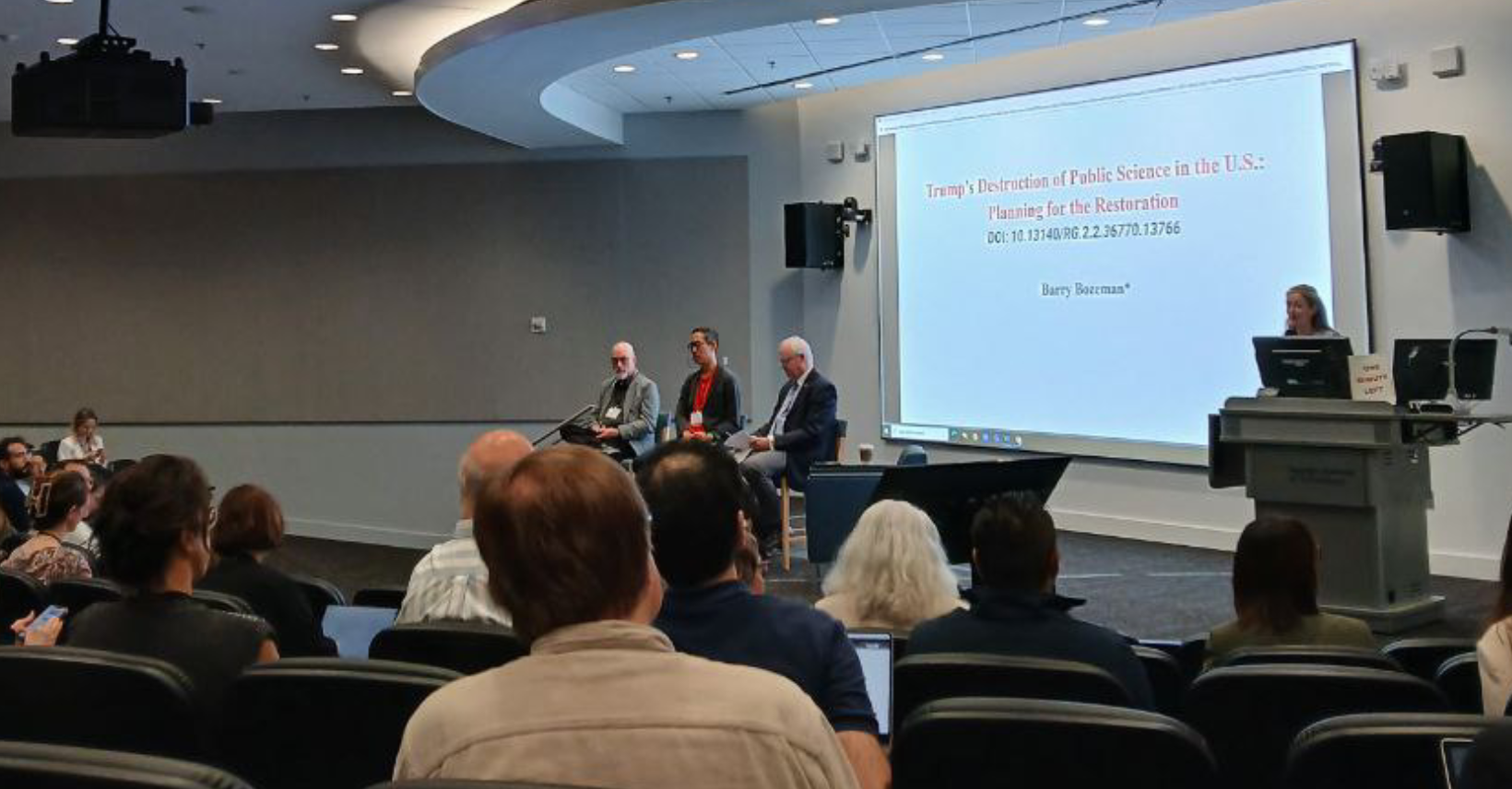Lynne Bowker emphasizes the need to adapt translator education to the AI era, highlighting the importance of transversal skills and the strategic use of technology as a support tool.

Lynne Bowker, a renowned linguist specializing in translation technologies, inaugurated the Humans on Air conference series, organized by researchers Benamí Barros, Pilar León, and Nicolás Robinson, members of the Unit, in collaboration with the Master’s Degree in Professional Translation a and the TRADia project (Project PID 24-180), with the assistance of the Scientific Culture Unit.
In a full conference room at the Faculty of Translation and Interpretation, Bowker addressed how translator education must adapt to the increasing presence of artificial intelligence (AI) and what skills should be reinforced in the training of future translators.
Rather than focusing solely on teaching AI tools, Bowker proposed a broader perspective, emphasizing the importance of revisiting fundamental concepts that may have been overshadowed by the rise of these technologies. She pointed out that AI has taken up a significant space in translator education, sometimes pushing aside essential aspects of learning.
A key takeaway from her talk was the need to strengthen transversal skills, often referred to as “soft skills.” These include critical thinking, creativity, collaboration, and communication skills, all of which are essential for the profession. According to Bowker, instead of assuming that these competencies develop incidentally, they should become a core focus of translator education.

Additionally, Bowker highlighted the importance of viewing technology as a support tool in education rather than an end in itself. She stressed the need for students to learn how to evaluate when and how to use AI strategically, promoting a more critical and deliberate approach to these tools.
Another significant aspect of her presentation was her reflection on intralingual translation, which involves adapting texts within the same language—an area that often receives less attention compared to interlingual translation. In this regard, Bowker emphasized the growing relevance of public translation and the use of plain language, particularly in sectors such as government communication and healthcare.
She concluded with a call on the translation community to take an active role in educating the public about translation and its challenges in the digital era. She stressed the need for translators to better communicate the value of their work and promote a greater understanding of AI’s impact on the profession.
This conference series will continue to explore different perspectives on the role of artificial intelligence, featuring experts from multiple fields, including linguistics, neuroscience, data science, computer science and AI, literature, journalism, and ethics, among others.



